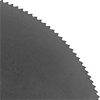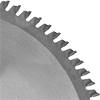Filter by
For Use On
Cut Type
Cutting Direction
Shank Diameter
Shank Type
Maximum Hole Depth
Export Control Classification Number (ECCN)
DFARS Specialty Metals
Overall Length
Tooth Material
Tip Radius
For Use With
Thickness
Insert Code
Fabricating and Machining



































